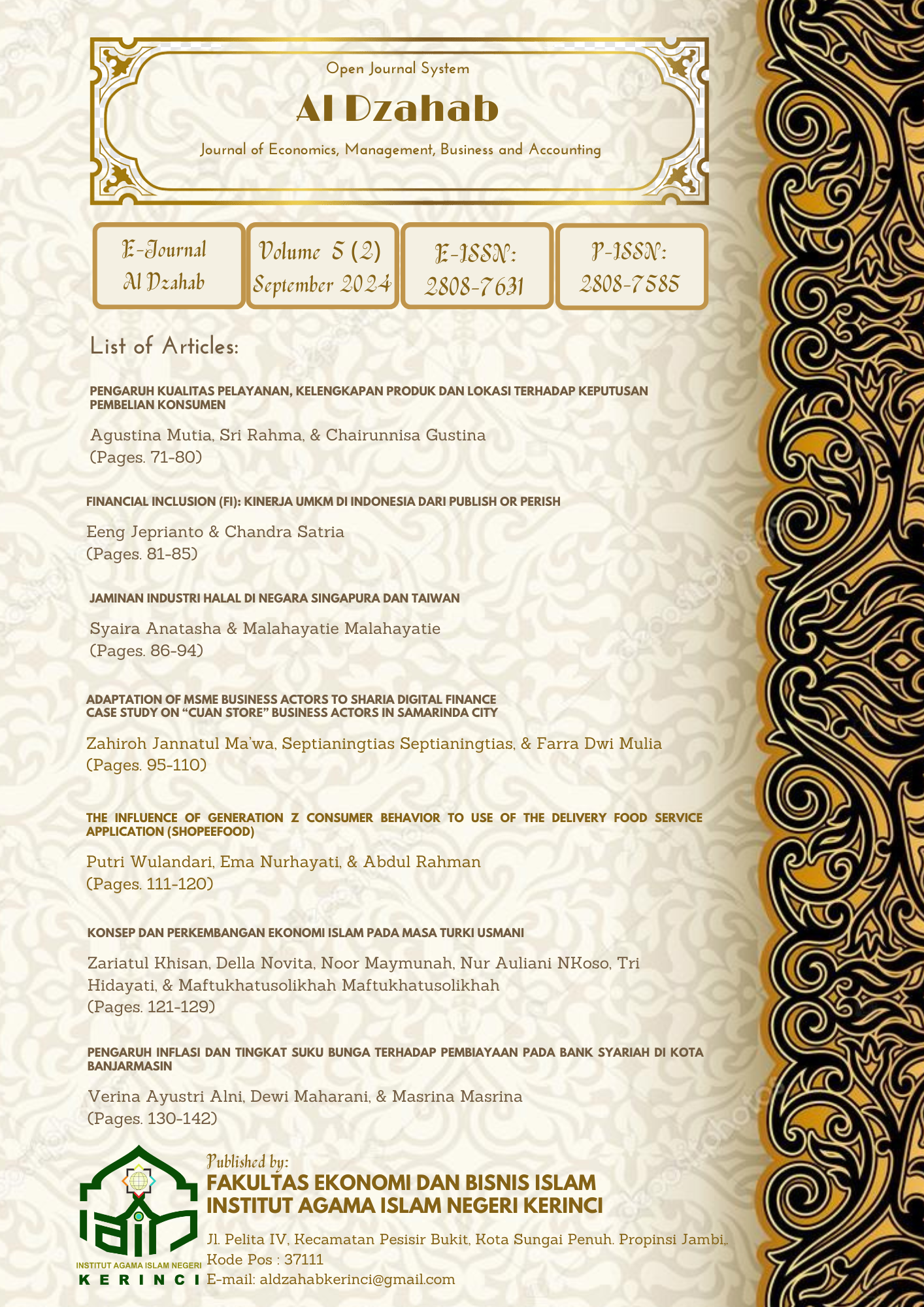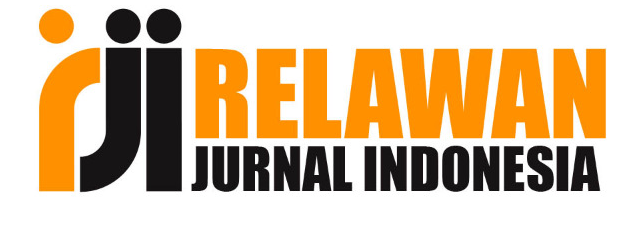KONSEP DAN PERKEMBANGAN EKONOMI ISLAM PADA MASA TURKI USMANI
DOI:
https://doi.org/10.32939/dhb.v5i2.4076Keywords:
History, Kingdom, Ottoman TurkieAbstract
Purpose: The purpose of this study is to analyze the development of the Islamic economy during the Ottoman Empire.
Design/methodology/approach: The research method used in this research is library research. The data used is secondary data obtained from relevant sources, books, journals and so on.
Findings: Ottoman Türkiye paid more attention to progress in the political and military fields. In this way, economic and financial conditions contributed to the development of Islam in the Ottoman Empire. Islamic economics during the Ottoman Empire reflected the integration of Islamic economic principles with practical economic practices and effective administration. So, according to researchers of the Ottoman Empire, it is very interesting to study in order to find out how the concept and development of Islamic economics was during the Ottoman Empire.
Research implications: The implications of the development of the Islamic economy during the Ottoman Empire include:Expansion of Trade Networks: The Ottoman Empire's strategic location bridged East and West, facilitating extensive trade networks that promoted economic growth and cultural exchange.
Downloads
References
Hasnahwati. (2020). Pendidikan Islam di Masa Turki Usmani. Jurnal Andi Djemma, 3(1).
Hidayat, R., & Kurniawan, R. (2022). Sejarah Pemikiran Ekonomi Islam Pada Masa 3 Kerajaan Besar.
Latifah, N. A., & Jamal, M. (2019). Timur Tengah Dan Ekonomi Syariah: Studi Empiris Terhadap Perkembangan Ekonomi Syariah Di Timur Tengah. AL-FALAH : Journal of Islamic Economics, 4(1). doi:https://doi.org/10.29240/alfalah.v4i1.591
Megawati, B. (2020). Kerajaan Turki Usmani. Tarbiyah Bil Qalam: Jurnal Pendidikan Agama Dan Sains, 4(1). doi:https://ejurnal.stita.ac.id/index.php/TBQ/article/download/23/23
Mubarok, A. B., & Witro, D. (2022). Relevansi Pemikiran Ekonomi Abu Yusuf Dan Al Syaibani Dengan Kebijakan Ekonomi Di Indonesia. TAWAZUN: Journal of Sharia Economic Law, 5(1).
Mudhiiah, K. (2016). ANALISIS SEJARAH PEMIKIRAN EKONOMI ISLAM MASA KLASIK. IQTISHADIA, 8(2). doi:https://doi.org/10.21043/iqtishadia.v8i2.956.
Munzir, M., Artianasari, N., & Ismail, M. (2023). “Sejarah Kerajaan Turki Usmani,”. CARITA: Jurnal Sejarah dan Budaya, 1(2), 159–76.
Muvid, M. B. (2022). Sejarah Kerajaan Turki Utsmani dan Kemajuannya Bagi Dunia Islam. Ta’dib: Jurnal Pendidikan Islam dan Isu-Isu Sosial, 20(2), 26–57.
Suar, A. (2020). Pemikiran Ekonomi Islam Pada Masa Awal Turki Utsmani. Al-Dzahab: Journal of Economic, Management and Business, & Accounting, 1(1), 53–71.
Sutisna, F. A., Durohman, H., & Anugrah, M. Y. (2024). The Impact Of Islamic Work Ethics, Attitude, And Hedonic Values On The Intention To Establish Sustainable Entrepreneurship Among Muslim Students In Java. Al Dzahab: Journal of Economics, Management, Business and Accounting, 5(1), 8-24.
Thalib, M. A. (2023). Understanding Zakat Accounting Practices Based On Local Cultural Value: A Study Of Islamic Ethnomethodology. Al Dzahab: Journal of Economics, Management, Business and Accounting, 4(2), 122-132.
Downloads
Published
How to Cite
Issue
Section
License
Copyright (c) 2024 Zariatul Khisan, Della Novita, Noor Maymunah, Nur Auliani NKoso, Tri Hidayati, Maftukhatusolikhah Maftukhatusolikhah

This work is licensed under a Creative Commons Attribution 4.0 International License.













